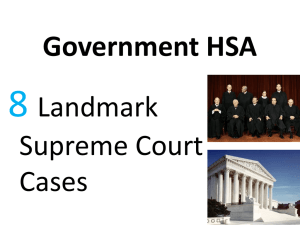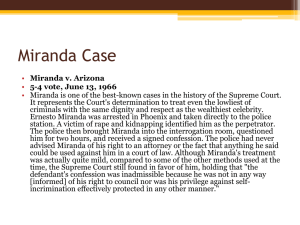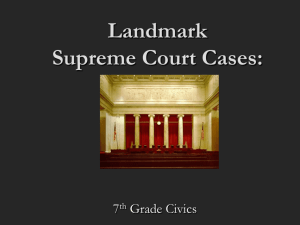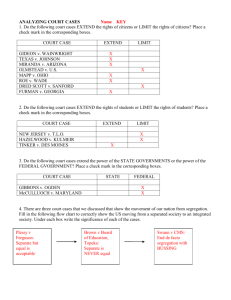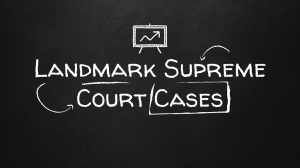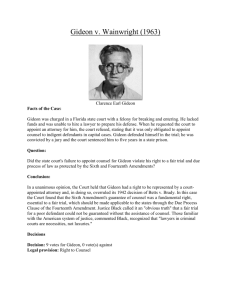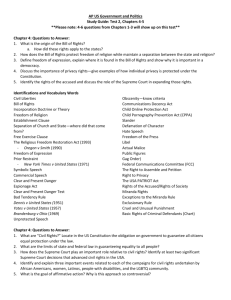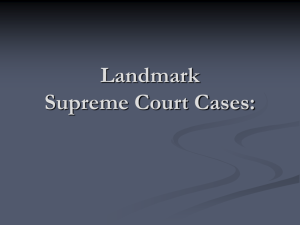Supreme Court Case Story Project
advertisement
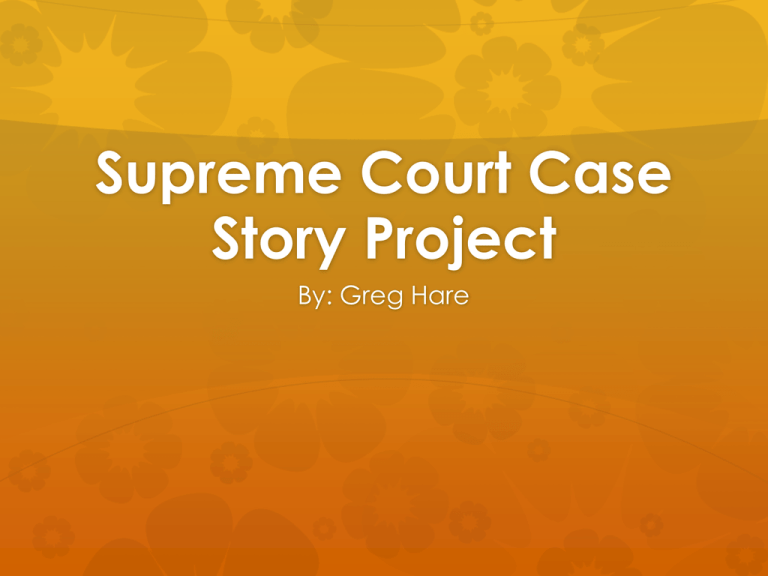
Supreme Court Case Story Project By: Greg Hare New Jersey v. T.L.O. Two girls were found smoke cigarettes in a New Jersey High School bathroom Two girls, one admitted to the crime, the other did not T.L.O. (the girl that denied) said that the vice principal unlawfully searched her purse and found marijuana T.L.O. tried to have the evidence suppressed New Jersey v. T.L.O. The juvenile court overturned it stating that under school rules, faculty and staff have the right to search with probable cause The probable cause was cigarette papers T.L.O. appealed her conviction to the appellate division but did not help her case She then appealed to the New Jersey supreme court The supreme court however ruled it unlawful since cigarettes are legal to have on school grounds, it is just illegal to use them in undesignated smoking areas Conclusion of NJ v T.L.O. Supreme court ruled in favor of the school and concluded that school officials do not need a warrant to justify a search and seizure. Stafford v. Redding Savana Redding, an eighth grader in arizona, was striped searched because of an accusation of another student The student told school officials that she had ibuprofen on her person which violated the school policy. Redding filled a lawsuit against the school and school officials reasonable for the search She alleged her Fourth Amendment right was violated The district court favored redding and granted the motion for summary and had the case dismissed. Miranda v. Arizona Ernesto Miranda was a Mexican living in Arizona that was picked out of a line up by a crime victim He was charged with rape and kidnapping During his interrogation, police officers did not inform him of his fifth or sixth Amendment rights. During the court case, Miranda's attorney argued that his confession should have been excluded from the trial because of the not being informed of his full rights. Miranda was sentenced 20 to 30 years in prison Conclusion Miranda v. AZ Although Miranda's appeal to the Supreme court ruled in favor of him, he still had to fulfill his conviction Gideon v. Wainwright Clarence Earl Gideon was found guilty of breaking and entering and petty larceny in Panama City ,FL in 1961 After being found guilty, he was unable to afford an attorney but was not given one by a court and had to defend himself. While in prison, Gideon studied law and wrote a petition for habeas corpus with the supreme court of Florida. Conclusion of Gideon The court ruled in his favor now no matter what, a defendant will have a attorney.
